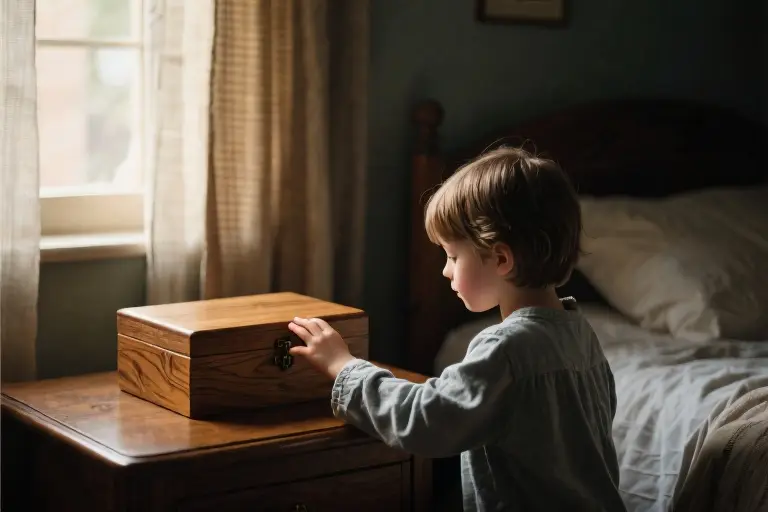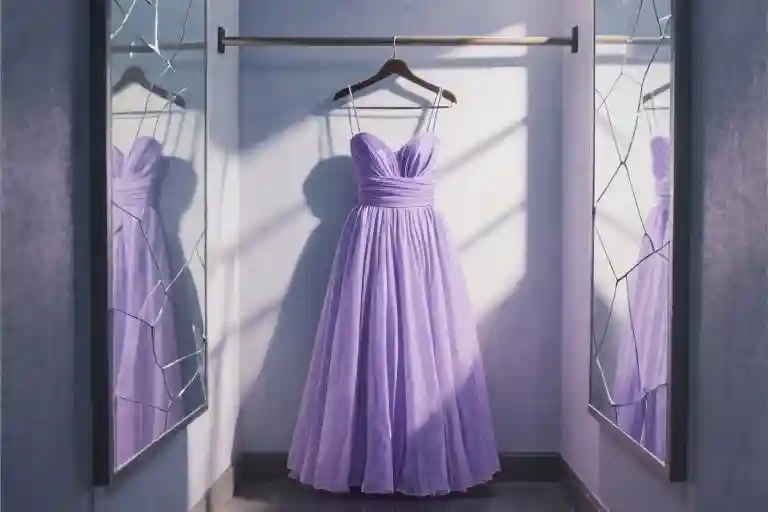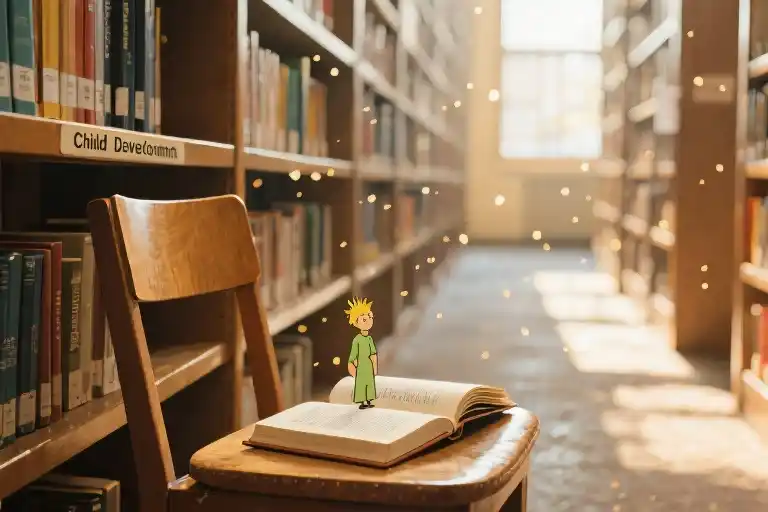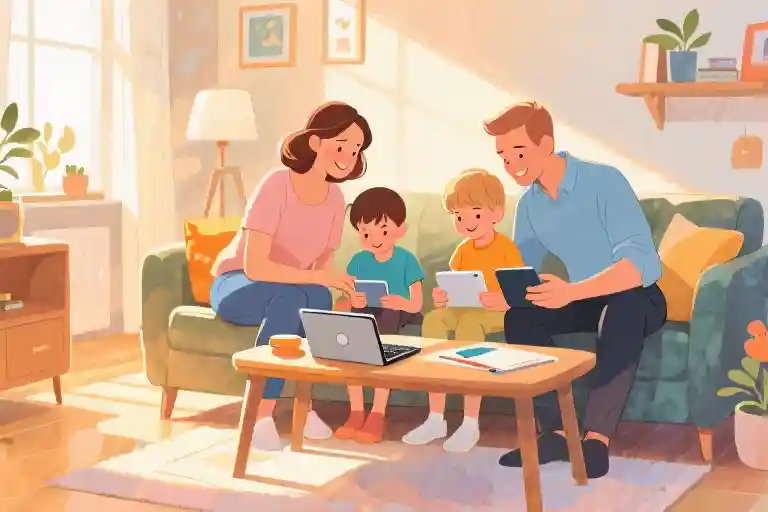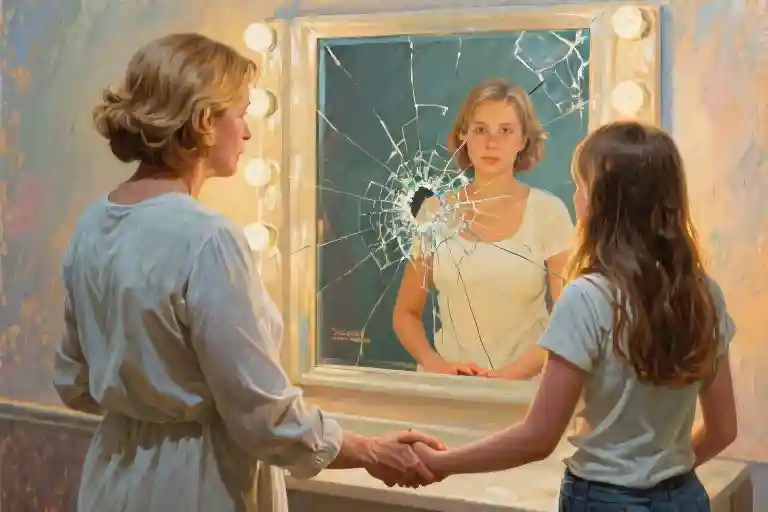Death is always a surprise. No one expects it. Not the elderly grandfather who insists he’ll see next spring’s blossoms, not the middle-aged coworker who cancels lunch plans citing a “minor check-up,” and certainly not the young father who lifts his giggling child overhead two weeks before the diagnosis. We construct elaborate defenses against this truth—life insurance policies, annual physicals, emergency savings—yet the moment still arrives like a thief, leaving behind widows clutching crumpled tissues and children fidgeting in stiff funeral clothes, too young to comprehend loss but old enough to store sensory memories that will surface decades later in the scent of lilies or the texture of mahogany.
It was no different with my father. Except it was worse. When death came for him at twenty-seven—an age more commonly associated with rock stars’ tragic demises than suburban fathers’ obituaries—it left an eight-and-a-half-year-old girl with just enough memories to last a lifetime, yet too few to answer the questions that would come later. Cancer doesn’t pick its victims with any discernible logic. It didn’t care that he’d just taught me to ride a bike without training wheels, or that we’d marked my half-birthday with chocolate cupcakes two months prior. That precise half-year matters when you’re eight; it meant I wasn’t a little kid who might forget, nor a teenager who could process grief with words rather than stomach aches.
The cruelty of timing became my inheritance. Had death come three years earlier, I might have retained only hazy impressions of a deep voice reading bedtime stories. No conscious memories would mean no persistent ache beneath the ribs when friends describe their fathers walking them down the aisle. But I would also have no recollection of how his stubble felt against my forehead during goodnight kisses, or the way he’d diffuse punishment with a perfectly timed joke—a parenting technique I’d later recognize as emotional intelligence decades ahead of its time. These fragments, polished smooth by years of mental handling, became the currency with which I purchased both enduring pain and immeasurable wealth.
Perhaps this is why we instinctively shield children from death’s clinical details while surrounding them with its rituals. The funeral home’s chemical-clean scent layered over floral arrangements created a sensory paradox my child’s brain couldn’t resolve. I remember tracing the coffin’s grain with fingers still bearing playground calluses, wondering why wood chosen for its durability would enclose something so ephemeral. Adults spoke in hushed tones about “passing” and “peace,” but their red-rimmed eyes told a different story—one my third-grade self lacked vocabulary to articulate but absorbed nonetheless. Children understand more than we credit; we simply don’t provide them the language to express it.
What no parenting manual prepares you for is how grief matures alongside the grieving. At eight, I cried because Daddy wouldn’t attend the school play where I’d landed the coveted role of Tree #2. At twenty-eight, the tears came when realizing he’d never meet the man I chose to marry—someone who, unconsciously, replicates his habit of delivering difficult truths with humor first. These layered realizations form the invisible inheritance of early loss: not just the absence of a parent, but the lifelong process of discovering what exactly was taken.
The Unprepared Goodbye
Death arrived unannounced on a Tuesday afternoon, the way it always does. My father was twenty-seven—the same age Jimi Hendrix and Janis Joplin left this world. But unlike those rock legends immortalized in the “27 Club,” his passing wouldn’t inspire documentaries or tribute albums. Just a half-empty church, a too-small casket, and an eight-year-old boy who still believed parents were invincible.
Cancer doesn’t discriminate between guitar heroes and grocery clerks. Two weeks before his diagnosis, he’d been teaching me to ride a bike, his laughter cutting through my wobbles. By the time autumn leaves fell, we were learning about chemotherapy instead—a word as foreign to me then as the concept of a world without his bedtime stories.
The Cruel Math of Time
Statistically speaking, only 0.3% of Americans die at twenty-seven. We expect tragedy to follow some cosmic pattern—to claim the reckless, the famous, those who’ve “lived fast.” Not a man who worked double shifts at the auto shop to pay for my piano lessons. Not someone who still had “Dad jokes” left untold.
I remember the exact moment reality shattered. The hospital smelled like antiseptic and cafeteria meatloaf when the doctor said “months” instead of “years.” My mother’s hands turned into trembling birds in her lap. I counted the ceiling tiles (fourteen across) because numbers felt safer than tears.
The Before-and-After Divide
Grief marks time differently. There’s the last normal day—in our case, a Sunday barbecue where Dad burned the burgers deliberately because I loved the “dinosaur meat” char. Then comes the invisible line crossed when “Daddy’s tired” becomes “Daddy’s dying.” Children sense this shift in whispered conversations and sudden hugs that linger too long.
What still haunts me isn’t the dramatic moments, but the ordinary last times we didn’t know were lasts:
- The final joke he told before tucking me in (“Why don’t skeletons fight? They don’t have the guts!”)
- His work boots by the door, still holding the shape of his feet
- The half-finished model airplane on our kitchen table
The Privilege of Memory
Twenty-seven years young. That’s what the funeral program said beneath his smiling photo—the one where his dimples showed. At eight and a half, I was exactly one-third of his lifetime old. Old enough to remember:
- How he’d let me “help” fix the vacuum cleaner by handing him random tools
- The way his flannel shirt smelled like sawdust and Old Spice
- His rule that every punishment started with humor (“You’re grounded… but first, hear this knock-knock joke”)
These fragments became my inheritance. Painful? Absolutely. But I’d choose this ache over the alternative—a blank space where a father should be. Some losses carve holes so precise, you spend years measuring their edges.
A Child’s First Funeral
The scent of lilies mixed with something sharper—maybe the disinfectant they used to clean the church pews. That’s what I remember most about my first funeral. At eight and a half, I didn’t understand why everyone wore black like a flock of crows, or why my mother’s hands kept fluttering to her throat as if checking for a necklace she’d forgotten to wear.
Children process grief through their senses before their minds can grasp the abstract concept of death. The coffin’s polished wood felt strangely warm under my fingertips when no one was looking. Someone had placed a framed photo of my father on top—his 27-year-old face smiling like he’d just told one of his terrible jokes. The other kids from our apartment building fidgeted in their stiff clothes, kicking their heels against the kneelers until their parents hissed at them. For them, this was just an unusually boring Sunday outing.
But I watched. I watched how my uncle’s shoulders shook when the priest spoke about ‘eternal rest.’ I noticed how my grandmother kept smoothing her skirt with trembling hands, the fabric making a shushing sound each time. These weren’t the quiet, respectful gestures I’d seen in movies—they were raw and confusing, like watching adults forget how to be adults.
The Things No One Explains
No one told me why we had to view the body. When my turn came, I stood on tiptoe to peer into the coffin, half-expecting my father to wink at me like he did during our bedtime stories. Instead, I saw a waxen version of him wearing a suit that looked both familiar and all wrong. His hands were folded too neatly across his chest, nothing like the calloused hands that used to toss me into the air until I squealed. Later, I’d learn this was called ‘paying respects,’ but in that moment, all I understood was that something fundamental had changed in the way the world worked.
Children learn about death through rituals before they understand the words. That afternoon, I discovered:
- How heavy a handful of thrown dirt sounds on a coffin lid
- Why people bring casseroles instead of toys to grieving families
- That ‘passed away’ meant the same as ‘dead,’ but adults preferred saying it in hushed tones
The Imitation Game
For weeks after the funeral, I recreated the rituals with my stuffed animals—lining them up in shoebox coffins, folding their plush paws just so. My mother would pause in the doorway, her face doing that strange crumpling thing before she’d ask if I wanted ice cream. Neither of us mentioned that this wasn’t normal play. Psychologists call this ‘trauma reenactment,’ but for me it was simply trying to make sense of why my father’s aftershave still lingered in the bathroom even though he’d stopped coming home.
The paradox of childhood grief is that you remember sensations with crystalline clarity—the scratch of wool tights against my knees during the service, the too-sweet taste of the funeral home’s peppermints—while the meaning behind them stays blurred. It would take years before I understood that funerals aren’t really for the dead. They’re for the living to say the things we never got to say, to perform the rituals that let us believe we’ve done something, anything, to mark the unmooring of a life.
Even now, certain sensory details can catapult me back to that church pew: the particular mustiness of old hymnals, the way sunlight through stained glass throws colored patterns on skin, the metallic taste that fills your mouth when you’re trying not to cry. These fragments remain, sharp as the day they formed, while entire conversations with my father have faded. Perhaps that’s why we cling to funeral rituals—they give our bodies something concrete to do when our minds can’t yet comprehend the loss.
The Paradox of Memory
Eight and a half. That precise fraction of childhood became the dividing line between having a father and becoming fatherless. At eight and a half, you’re old enough to remember the sound of someone’s laughter but too young to understand why it disappears.
Memory is a merciless gift. I remember the way my father’s work boots smelled of leather and motor oil when he carried me to bed. I remember how his watch left temporary marks on my wrist during our weekend wrestling matches. These sensory imprints outlasted the man who created them, turning into both treasures and landmines.
Psychologists call this autobiographical memory – the mental scrapbook we begin compiling around age 7. Mine opened just in time to preserve a father who wouldn’t live to see me turn nine. Had cancer taken him earlier, before my brain developed this capacity, I might have been spared decades of grief. But I also would have missed knowing the security of his hand on my bicycle seat during those wobbly first rides.
This is the cruel arithmetic of early loss: the same memories that cause pain also prove we were loved. I sometimes envy friends who lost parents as toddlers – their clean slate of absence seems simpler than my album full of fading polaroids. Yet when I hear myself telling my son a joke before disciplining him (just like Dad did), I realize these echoes make parenthood feel less like flying blind.
The paradox sharpens with time. Childhood memories don’t fade linearly – they dissolve like sugar cubes, leaving unexpected sweetness in random corners. Last winter, the scent of pine sap transported me to the Christmas tree lot where Dad let me pick the ugliest fir. For three minutes, I was eight again, tugging mittened fingers through sawdust. Then reality returned like a bucket of ice water.
Grief specialists say this bittersweet recall serves an evolutionary purpose. The pain ensures we don’t forget survival-critical relationships, while the pleasure motivates us to form new bonds. My eight-year-old self didn’t need this explanation. She already understood that remembering hurts because it matters.
Now, when counseling friends through parental loss, I share this hard-won equation: The depth of your sorrow equals the depth of their love. It’s cold comfort during midnight tears, but eventually, the math adds up. Those fragmented memories – his terrible Elvis impression, the way he burned every pancake – become the evidence that he existed. That he chose to be your dad. That for eight and a half glorious years, you were somebody’s whole world.
The Habits That Remain
My father had this peculiar way of disciplining me that I’ve never encountered anywhere else. He would tell me a joke right before grounding me. Not during, not after – always right before. It was his signature move, like a magician revealing the trick after the show. The joke softened the blow, made the punishment feel less like a sentence and more like a natural consequence of my actions.
I remember one particular instance when I’d broken his favorite mug – the one with the faded university logo he’d had since before I was born. He sat me down, his face serious, and I braced myself for the scolding. Then suddenly: “Why don’t scientists trust atoms?” A beat. “Because they make up everything!” His laughter filled the room before he calmly explained why carelessness with other people’s belongings wasn’t acceptable. Two days without television suddenly didn’t seem so terrible.
This approach taught me more than any straightforward punishment ever could. It showed me that mistakes could be corrected with both accountability and humor. That discipline didn’t have to mean anger. Now, decades later, I catch myself using the same technique with my own children – though my jokes are considerably worse than his ever were.
Then there were the bedtime rituals. Every night without fail, no matter how tired he was from work or treatments, he would come to my room, sit on the edge of my bed, and kiss me on the forehead. His stubble would scratch lightly against my skin, a sensation I can still recall with perfect clarity. Sometimes he’d tell me a story; other times we’d just sit in comfortable silence. But the kiss was non-negotiable, our private tradition.
The last time I saw him conscious, he was too weak to walk to my room. So I went to him instead, climbing carefully onto the hospital bed they’d set up in the living room. His breath was labored, but he still managed to raise his hand to my forehead. His fingers were cold. A habit…
The Space Between Memory and Loss
The hardest part about grief isn’t the absence—it’s the presence of what remains. The half-remembered jokes that surface at inappropriate moments. The way your hands sometimes move in patterns you didn’t consciously learn. The phantom weight of a child sitting on shoulders that disappeared twenty years ago.
When we talk about childhood trauma from parental loss, we often focus on the void. But the real paradox lies in these lingering fragments—the habits and mannerisms absorbed through osmosis during those critical developmental years. Psychologists call it “post-bereavement identity development,” where the living unconsciously preserve aspects of the departed. Children who lose parents young don’t just mourn a person; they mourn the unfinished curriculum of how to be.
My father’s bedtime ritual always ended the same way: three quick kisses to the forehead—the third always slightly off-center so his stubble would brush my temple. For years after his funeral, I’d catch my own hand moving toward my future children’s heads in that same arc before remembering. A habit…
Resources for Continuing the Journey
For those navigating similar terrain:
- The Dougy Center (dougy.org): Peer support groups for grieving children
- Camp Erin (elunanetwork.org): Free bereavement camps for kids 6-17
- American Childhood Cancer Organization (acco.org): Support for families facing pediatric cancer
- The Orphaned Adult by Alexander Levy: Understanding lifelong impacts of parental loss
What makes these resources valuable isn’t their solutions—because grief has none—but their recognition that we don’t move on from loss. We move forward with it, one remembered habit at a time.

